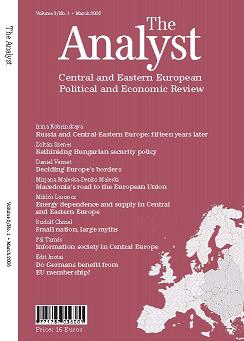Energy dependence and supply in Central and Eastern Europe
Energy dependence and supply in Central and Eastern Europe
Author(s): Miklós LosonczSubject(s): Economy
Published by: Globális Tudás Alapítvány
Summary/Abstract: The countries of Central and Eastern Europe (CEE) recently experienced discontinued or ,mainly in the post-Soviet states, weakened political influence from Russia. This came long with their transition to market economies and Western-style democracies, and their accession to the European Union, their increased focus on the EU. However, dependence on Russian energy in these states remained unchanged, especially in the case of natural gas and oil. In fact, with energy demands expected to rise as domestic production drops, these countries will be increasingly dependent on imports in the long term. They can only tangibly reduce their energy dependence on Russia, and geographically diversify their gas and oil imports, at the expense of costs so big as to be irreconcilable with economic rationality. Such moves can hardly be justified in a period when political relations between the EU and Central-Eastern European countries, on the one hand, and Russia on the other, are basically amicable. Especially when Russia itself is dependent on energy exports and the accompanying foreign exchange revenues in order to modernise its economy. This fact gives the relationship a quality of mutual dependence.
Journal: The Analyst - Central and Eastern European Review - English Edition
- Issue Year: 2006
- Issue No: 01
- Page Range: 73-88
- Page Count: 16
- Language: English

